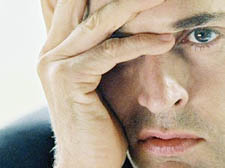|
|
 |
| |

Rupert Everett |
Roller coaster ride of Rupert Everett’s life
William Hall gets on board for the highs and lows of the actor’s achingly honest autobiography
RED CARPETS AND OTHER BANANA SKINS
by Rupert Everett,
published by Little Brown, £18.99.
SO who exactly is Rupert Everett? Is it just me – or do you, too, tend to confuse him with the likes of Nigel Havers, Rufus Sewell, Colin Firth and other handsome B-list British braves, all of whom have notched up a few good scalps but never the chieftain’s headdress?
If so, then you’re in for a pleasant surprise with his deliciously entertaining and achingly honest autobiography Red Carpets and Other Banana Skins.
The son of an army major, he was born on May 29 1959 “some time before tea” and weighed in at a robust eleven pounds, to be brought up by “Mummy” and “Nanny” amid the glowing cornfields of Essex in a farmhouse surrounded by a moat, which gives an early insight into his background and breeding.
To confirm it, little Rupert was bloodied in a hunt by having a fox’s paw – “raw and bleeding” – smeared all over his face.
Not many actors can attest to such a start in life.
He would end up amid the monastic portals of Ampleforth College in Yorkshire, where, as he puts it: “I learned who I was. Or at least who I wasn’t. I was probably going to be homosexual, and that meant I was going to have to learn how to act.”
He sang in the choir and joined the dramatic club for his first scent of greasepaint, where his star debut in front of his stunned parents was the role of Titania, Queen of the Fairies, in A Midsummer Night’s Dream, complete with a “very fetching peach-blonde wig”.
His performance brought the house down. From then on, all his school roles were female.
Rupert left school two years early at 16, heading for the footlights via the Central School of Speech and Drama, before making his big impact as defector Guy Bennett in the 1982 stage production of Another Country, repeating it for international audiences in his acclaimed screen debut two years later.
His career blossomed with the acclaimed mini-series The Far Pavilions, filmed in India, which he sums up as “a story of star-crossed lovers, Romeo and Juliet in India,” with a cast headed by Ben Cross and Amy Irving. Rupert played a civil servant “who committed suicide in the first episode. But I didn’t care. I was young, I was working!”
Then came Dance with a Stranger, directed by Mike Newell, with Miranda Richardson playing Ruth Ellis, notorious as the last woman to be hanged for murder after shooting her lover (played by Everett) in a Hampstead pub. He starred in Duet for One (1987), with Julie Andrews, and My Best Friend’s Wedding (1997) with Julia Roberts. Rupert was playing the field.
There were other films too, some of which he prefers to forget. Like Robert Altman’s fashion house disaster Pret a Porter (1994), and The Next Best Thing (2000) with Madonna, when one critic wrote: “Rupert Everett’s performance has all the energy of a pet rock.”
Oops! His relationship with the material girl seems to have been a love-hate affair, with plenty of bitchy moments.
In 1987 his life struck a low point. Rupert calls it: “My rock and roll descent into hell,” fuelled by drugs and vodka. He exiled himself to Paris, with scarcely a role to remember.
But he would come back with a hilarious chapter on making A Different Loyalty, 2002, as master spy Kim Philby, with his end-of-term report on his beautiful co-star Sharon Stone: “I finally realised something. She was utterly unhinged!”
Away from the screen Rupert had become an unashamed member of the gay community, openly enjoying life in the “shimmering pink triangle” around King’s Road, Earl’s Court and Kensington. Rupert spares no blushes, least of all his own.
A procession of homosexuals cruise entertainingly through the pages in gay abandon, from the known (Franco Zeffirelli, Ian McKellen, Gore Vidal, John Schlesinger) to a host of unknown young men, including “a rather prickly romance with a Roman boy”.
The fascination of this autobiography is not so much the films, but the rip-roaring roller-coaster ride of Everett’s life and the characters he has met along the way. His descriptions are wonderfully vivid.
Sample? Describing Miami Airport: “At the gates there were shrieks of reunion and waves of regret as travellers crashed in on the tide and were sucked out on the undertow.” Oh, yes.
On the final page, at that same airport, he recalls how he was approached by a drunken tourist who mistook him for another leading man and asked for his autograph.
Rupert obliged. “Drop dead,” he wrote. And signed it: Hugh Grant. For this particular drama queen, that had to be one for the book.
|
 |
 |
|
 |
|


